Transforming organizations from the inside featuring Heather McGhee
Transcript
[Transforming organizations from the inside out. Heather McGhee, distinguished senior fellow, Demos. A Black woman with a broad smile and dreadlocked hair, wearing a wool blazer.]
ANNOUNCER: Please welcome Heather McGhee.
[applause]
HEATHER MCGHEE: When I became president of Demos, I didn’t have to change anything. I’d been working there happily since I was 22 years old. I respected our impact and I cared deeply about my colleagues. Like most think tanks, my organization was majority white—the figure at the time was about 75 percent—and it had been founded by white men. I was the only person of color in executive leadership. But we’d gotten along just fine with that makeup, and in many ways our mission of addressing solutions to inequality in our democracy, in our economy, was going forward and we could get along with whatever racial analysis people brought into their work. But, as I’d done the work over the course of a decade, I’d come to see that it wasn’t just that race was a multiplier of inequalities, that people of color fared worse in an unequal system, it was that racism was a driver of the inequality for everyone. Take our work, supported by Ford for over a decade, to reform the financial system.
Now, I remember so vividly, standing on the corner in a black middle-class neighborhood in Cleveland, in the mid-2000s, and sobbing, because the street was riddled with foreclosures. Because rapacious lenders had experimented on black homeowners with impunity, stripping their wealth and then moving on to take those same tactics across the country, and then bundle them up into millions of designed-to-fail mortgages and spread them across the global markets. We wouldn’t have had a financial crisis if it weren’t for racism. Or, take our work to expand our democracy. The barriers that we at Demos were trying to dismantle were erected after Reconstruction to keep black people out of power. And now they keep nearly 51 million citizens of all races from voting. And so, with this insight about the centrality of racism to the inequalities that affect us all, I set out to transform our organization. I had the wind at my back of the capacity-building support of Ford’s extraordinary BUILD program, and we made an ambitious plan. Four years later, when I handed off the reins at Demos to my incredibly talented successor, Sabeel Rahman, we had a majority person of color think tank.
So, what did we learn along the way? First, take the time to develop your core rationale—why the transformation you seek is mission critical. Transformation work can’t be a nice-to-have. It has to be a must-have. Or else it will always get deprioritized when the world is on fire. Second, assess everything. Our racial, gender, and class, diversity, of course, but also each individual’s level of fluency. Their ability to confront racism and work with self-awareness, evaluate it, train towards it, and hire for it. Third, get comfortable not knowing. We developed a robust curriculum and, most importantly, unlearned a whole bunch of toxic beliefs that even good liberal folks like us had carried into our work. Fourth, be willing to make new friends and lose some. Our transformation work led us to intervene in a field where we’d been long established, bring in new partners, and upset a few apple carts. Fifth, allow people the room to grow. Believe in the power of the change. Even those of us leading the work had a lot to learn. We made mistakes. It’s in the recovery. I’ll never forget the moment when a heretofore painfully shy, white female economist felt so ready and empowered, that she went on Fox News to debate and defend the validity and the aims of Black Lives Matter. That was a proud moment for me. And, finally, do it with joy. While the reality of stubborn racism is painful, the world we’re fighting for, where we unleash the full human capacity of our beautiful diverse demos, is one we should celebrate right now along the journey.
Next year, I’m happy that I’ll be able to give you a copy of my book about the ways that racism harms us all—not just people of color, but white people too, and our entire society. And I’ve done so with the conviction that despite our deepening divisions, there is a place where our interests meet, and, as I’ve experienced firsthand, human transformation is always possible. Thank you.
[applause]
[New gospel of wealth. What does #GenerosityToJustice look like to you? Ford Foundation dot org forward slash new gospel.]
Accessibility Statement
- All videos produced by the Ford Foundation since 2020 include captions and downloadable transcripts. For videos where visuals require additional understanding, we offer audio-described versions.
- We are continuing to make videos produced prior to 2020 accessible.
- Videos from third-party sources (those not produced by the Ford Foundation) may not have captions, accessible transcripts, or audio descriptions.
- To improve accessibility beyond our site, we’ve created a free video accessibility WordPress plug-in.
Heather McGhee, distinguished senior fellow at Demos, shares the lessons she learned as the think tank’s former leader and ideas for building effective nonprofits.
“Human transformation is always possible.”
– Heather McGhee
Learn more about New Gospel of Wealth
Other videos in this series
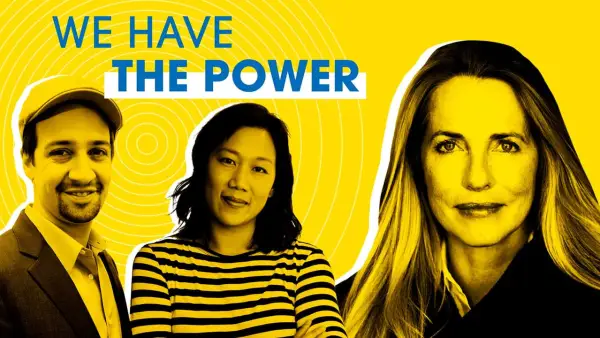
Let’s rethink giving
How can we reimagine philanthropy so that we create a future where there is justice and dignity for all? What are the root causes of the issues and how do we encourage the participation of many and not just a few?
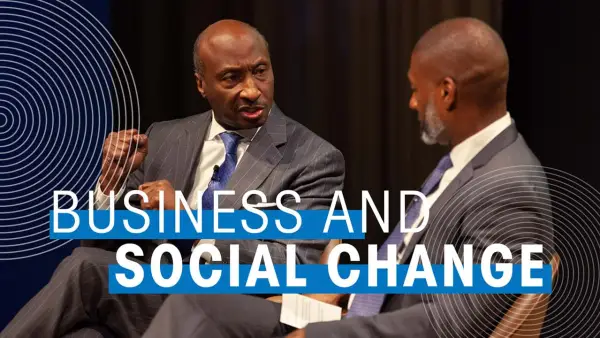
The business of justice featuring Kenneth Frazier and Charles Blow
Kenneth Frazier, CEO of Merck and Co, believes one of the greatest injustices in our society is the health disparities experienced by women of color. A zip code is more likely to determine health outcomes than genetic code. Frazier uses philanthropy to address mortality rate and wants to see more medical personnel listen to their women patients and patients of color.
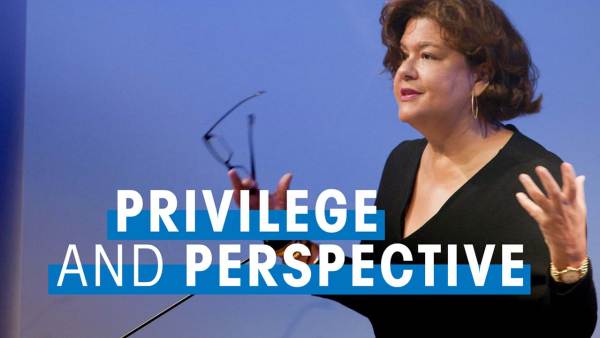
The privilege of perspective featuring Elizabeth Alexander
Elizabeth Alexander, president of the Andrew W. Mellon Foundation, on art, activism, and acknowledging adversity.
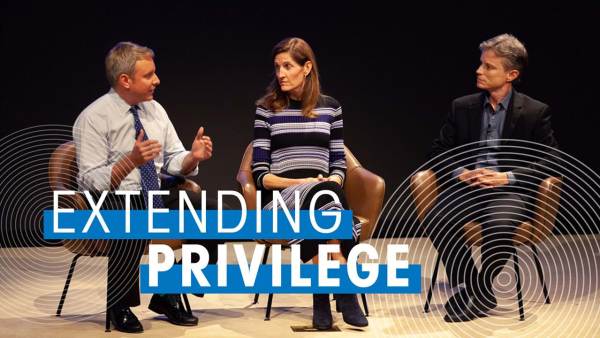
Extending privilege featuring Valerie Rockefeller and Henry Ford III
Henry Ford III, trustee of the Ford Foundation, and Valerie Rockefeller, chair of the Rockefeller Brothers Fund, discuss transforming philanthropy for the 21st century. The families have seen the value of impact investing and believe in partnerships to increase the difference that can be made.
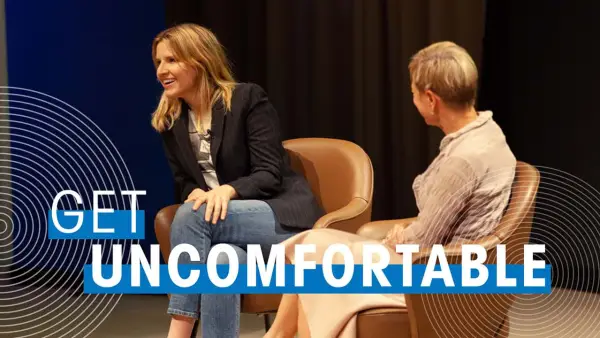
Getting proximate featuring Tara Westover and Hilary Pennington
Tara Westover, author of “Educated,” sees a disconnect between the rural and urban parts of the United States. She believes philanthropists need to be more proximate to the issues they care about, and that spending time with people who aren’t like you is key to disrupting inequality.
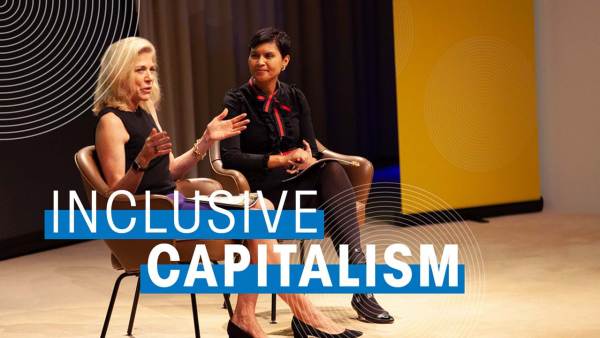
Can capitalism ever really be inclusive? featuring Lynn Forester de Rothschild and Stephanie Mehta
The top 1 percent of the United States controls 42 percent of the national wealth. Lynn Forester de Rothschild, founder of the Center for Inclusive Capitalism, explains that reimagining the economy and making it a sustainable, inclusive system that leads to strong economic growth requires reform.
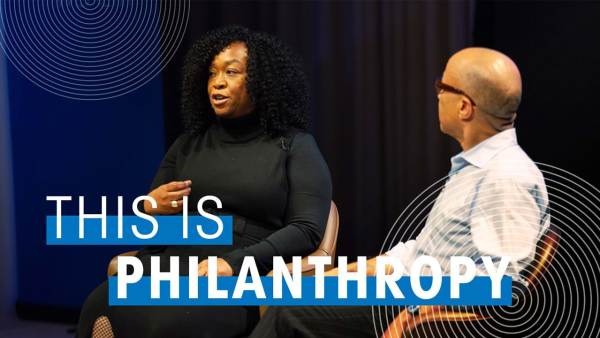
This is what a philanthropist looks like featuring Shonda Rhimes and Darren Walker
Writer and producer Shonda Rhimes has seen the power storytelling has to make change through her work, which centers marginalized people and issues. Rhimes believes philanthropy sets an example others can follow, and says supporting organizations that are already on the ground doing the work is key.
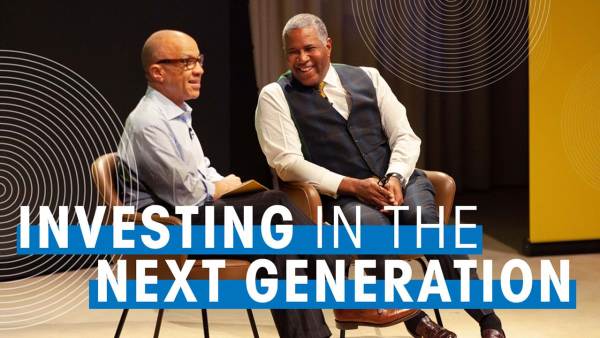
Catalyzing the potential of our time featuring Robert Smith and Darren Walker
Through philanthropy, Robert Smith, CEO of Vista Equity Partners, has alleviated the burden of student debt for a graduating class. He says private philanthropy can help address public policy challenges, such as student loan debt, and is a disruptive opportunity that liberates people to contribute to society in positive ways.
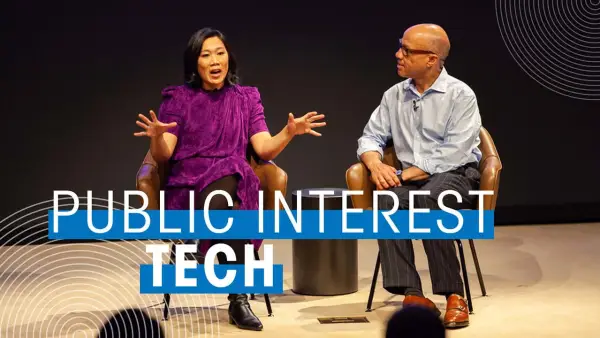
Tech funders changing philanthropy featuring Priscilla Chan & Darren Walker
The top 1 percent of the United States controls 42 percent of the national wealth. Lynn Forester de Rothschild, founder of the Center for Inclusive Capitalism, explains that reimagining the economy and making it a sustainable, inclusive system that leads to strong economic growth requires reform.
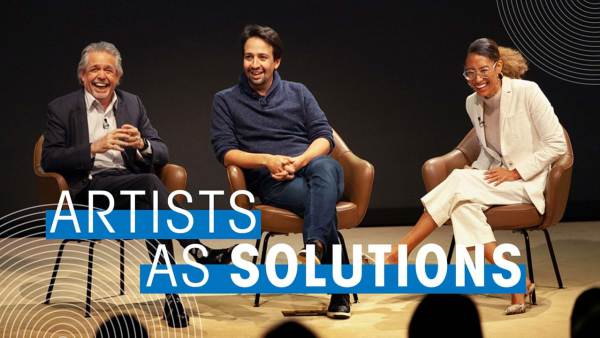
Why artists shouldn’t stay in their lane featuring Lin-Manuel Miranda, Luis Miranda Jr. and Elaine Welteroth
Composer and actor Lin-Manuel Miranda believes all art is political. He and his father, Luis A. Miranda Jr. of the MirRam Group, see the value philanthropy has to empower communities that may have been neglected, and allow them to share their stories through the arts, like Puerto Rico did after Hurricane Maria.
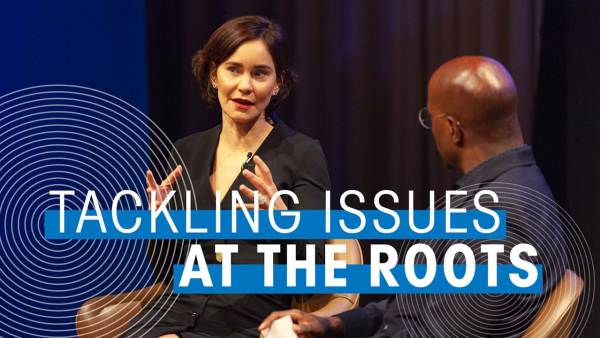
Good philanthropy needs government featuring Laura Arnold and Van Jones
Laura Arnold, co-chair of Arnold Ventures, believes policy change is the lever that will lead to sustainable change. She says we need to attack the systems that are creating the injustices we see, like criminal justice. Philanthropy can create better alternatives that governments can adopt.
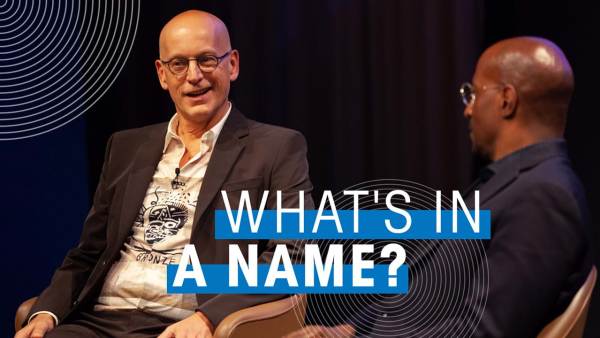
The power of a name featuring Jon Stryker and Van Jones
As a philanthropist, Jon Stryker, president of the Arcus Foundation, believes the act of naming gives power and influence to the work that is supported through his gifts. His philanthropy supports those on the frontlines of justice, providing resources and power to those who need it most.
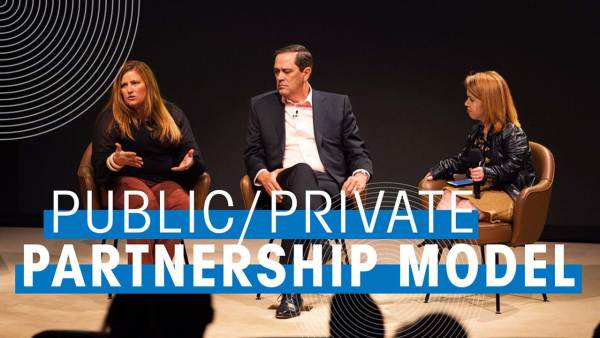
Public-private partnership: A new model for lasting impact featuring Jennifer Loving and Chuck Robbins
Jennifer Loving, CEO of Destination: Home, says a public-private partnership, like the one between her nonprofit and Cisco, headed by Chuck Robbins, can help create a model for the future of philanthropy, and tools like social bonds can help address some of the biggest crises of our time.
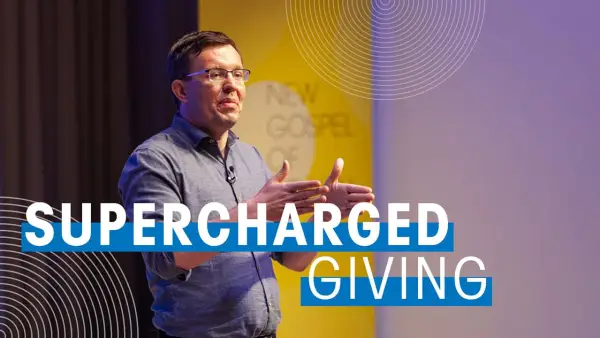
The new power of philanthropy featuring Henry Timms
CEO of Lincoln Center Henry Timms asks how philanthropy can supercharge civic engagement. Timms, who started Giving Tuesday, says trust-based philanthropy needs to shift from generosity to justice, driving more participation from more people, and encouraging meaningful ways to participate and collaborate.
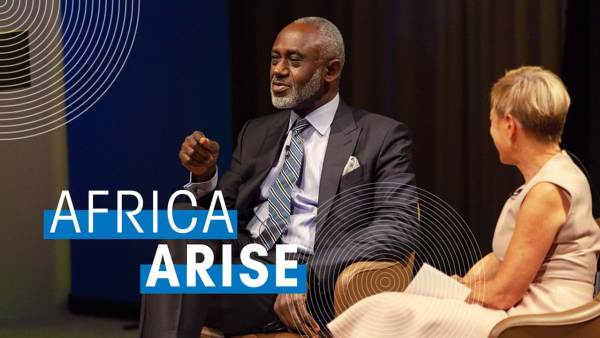
Africa, your time is now featuring Gbenga Oyebode and Hilary Pennington
Ford Foundation trustee Gbenga Oyebode has seen the value of impact investing on the African continent. He believes philanthropy should not just be giving, but investing with a social impact and an economic return. Giving is inherently part of African culture, but needs to be more strategic and collaborative.
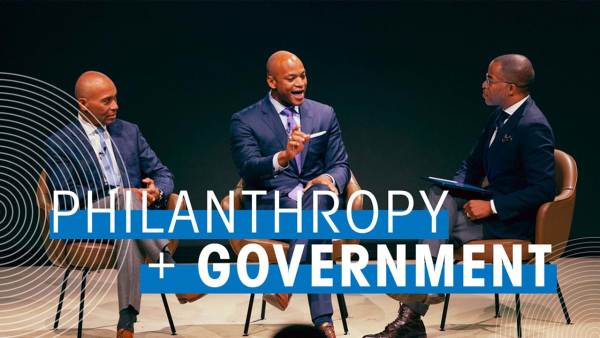
Why good government needs philanthropy featuring Deval Patrick and Wes Moore with Jonathan Capehart
Wes Moore, CEO of Robin Hood, and Deval Patrick, managing director of Bain Capital, see philanthropy working hand-in-hand with government in the fight for equality. Philanthropy can often provide the initial capital needed while government can take over and scale the solution.
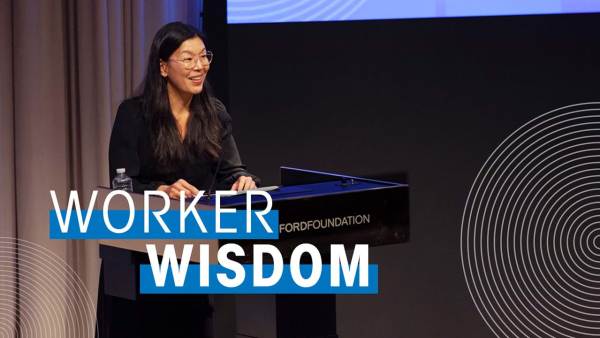
Bringing hidden labor to light featuring Ai-Jen Poo
Ai-jen Poo, executive director of the National Domestic Workers Alliance, says the sector of caregivers and domestic workers continues to grow. Building a future of work that works for all is centered on justice-based philanthropy and not a generosity model.
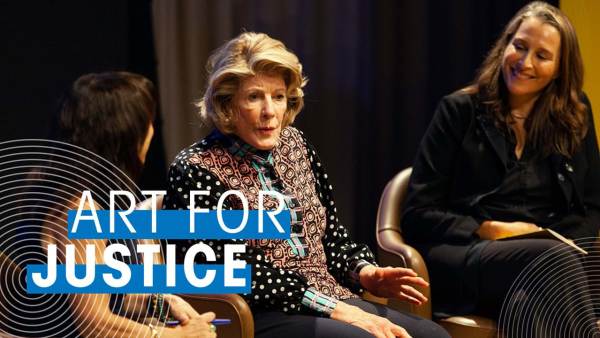
Art for Justice featuring Agnes Gund and Catherine Gund with Maria Hinojosa
The Art for Justice fund was created to help end mass incarceration. Founder Agnes Gund says philanthropy is about addressing issues like this. Catherine Gund believes art has an important part to play in the fight for racial justice and can help change the policies that led to mass incarceration.
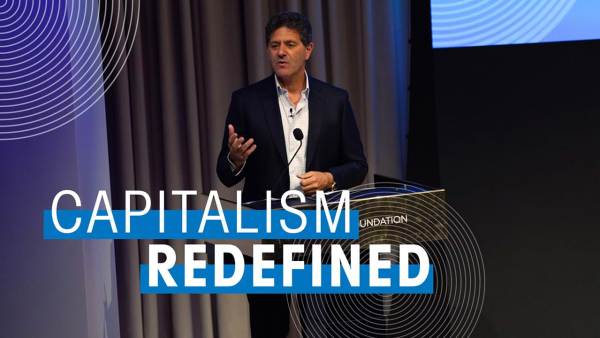
Capitalism redefined featuring Nick Hanauer
Entrepreneur Nick Hanauer asks us to reimagine the economy. He believes we need to change our beliefs about the economy to create a more just, more equitable society for all. By choosing better economic beliefs, we can change society for good.
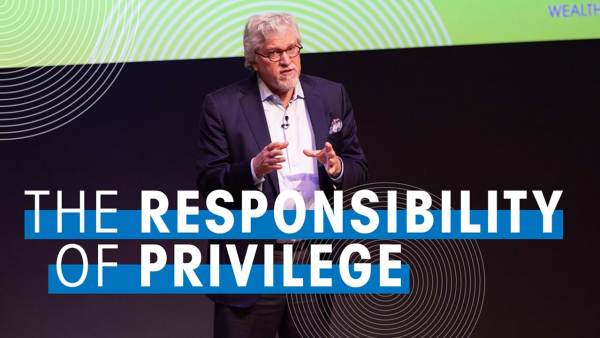
On using power and privilege for change featuring Jeff Raikes
Jeff Raikes, co-founder of the Raikes Foundation, says dismantling racism requires philanthropy to ditch its colorblind approach. People in power need to acknowledge that privilege is invisible to those who possess it. Privilege and power need to be transformed into a force for changing our society for the better.